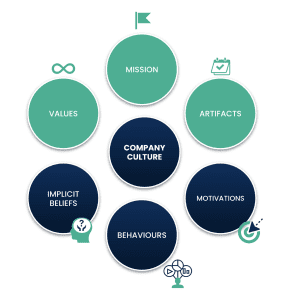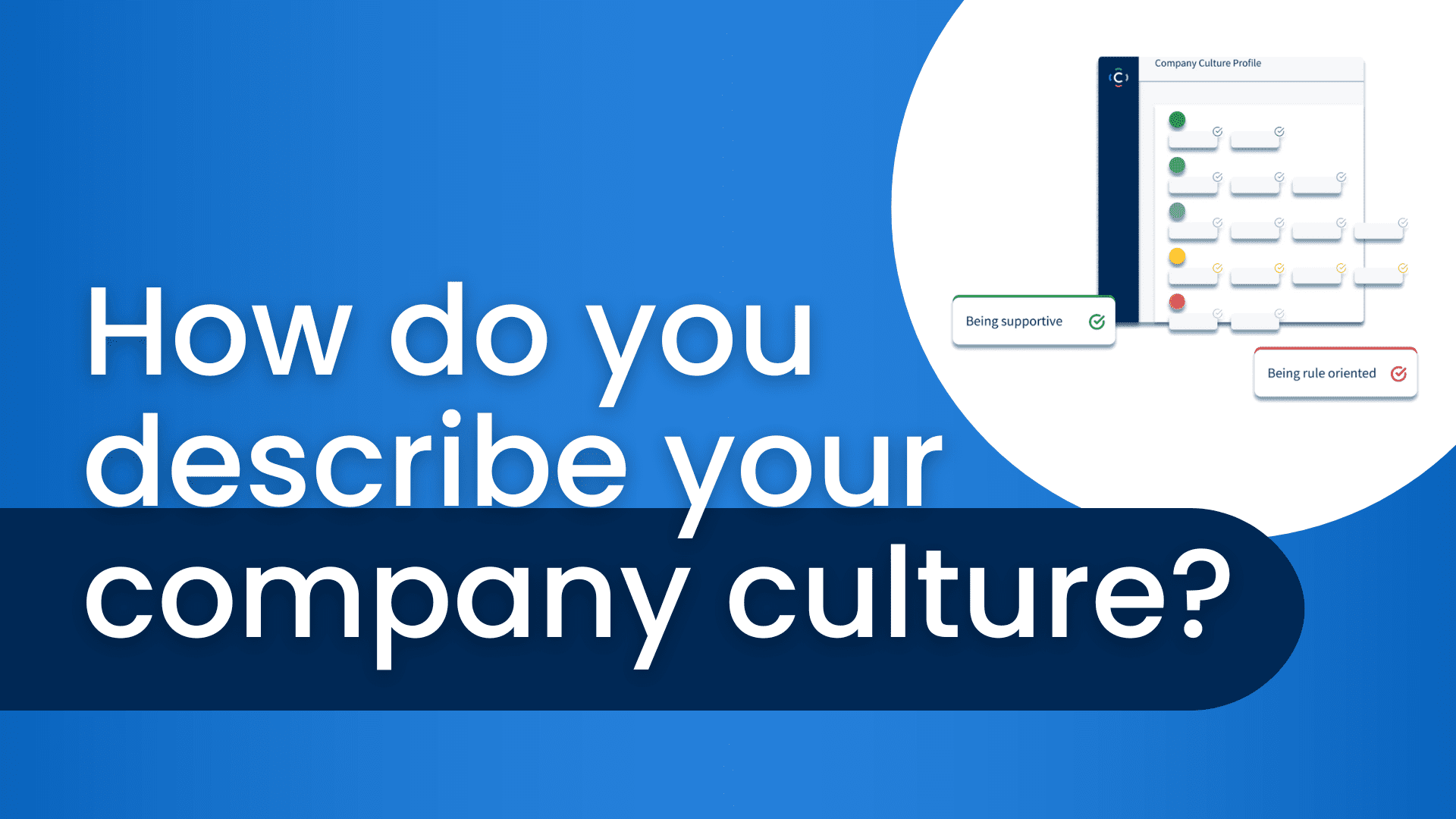Clarity Recruitment’s CEO, Joe Diubaldo, and Naomi Choi, Head of Product, recently led a thoughtful discussion about corporate culture. What is it? And how do you measure it? As a recruitment firm with over a decade of expertise helping fast-growing companies find top finance and accounting talent, we’ve invested a great deal of time into researching this topic and developing technology that helps companies communicate their values and measure the behaviours that makeup company culture.
How do you describe your company culture?
To start, culture is more than what people typically define it as. It’s not about where you work, it’s how you work. But, it’s not always easy to create a common language to describe your company culture and define it in a way that’s consistent across all organizational stakeholders. It’s common (and easy) to assume that perks make up company culture. While perks can help reinforce the culture at a company, true culture goes far beyond superficial benefits.
Culture is the unspoken beliefs, behaviours and rituals that we engage in while we’re working together. It’s moulded by the values, artifacts and incentives that create harmony or discord. At its core, it’s how it feels to work in a company. And as a further point, it’s important to recognize that different teams within companies can have different cultures, giving rise to subcultures.
Culture is not one-size-fits-all
There isn’t a uniform, perfect staff type that everyone will fit into. There is variability in culture because of different leaders, different staff members, and the different experiences that these people have everyday. And while culture has variables, it can easily be broken down into the mission, values, artifacts, implicit beliefs, motivations and behaviours within the organization.

These six components make up the framework of corporate culture and, when broken down and evaluated, can help you better understand the current culture at your company. Start by asking, “What do we recognize to be true as an organization? What behaviours arise as a result of these beliefs? What motivates employees to reinforce these behaviours?” Asking these questions can unlock valuable information about your company culture and help you to understand what is motivating employee behaviours.
Walking the talk
Let’s zero in on the “values” component. Many organizations are grounded in a set of values, but what is the relationship between those values and the other components of culture? To truly live our values, you have to walk the talk and reinforce the values that your company has deemed to be important. If a proposed value for your staff is to “act like the owner,” then you can offer perks, policies, and incentives that provide the autonomy for staff to make decisions and take ownership of their work. If a value is to “move fast and break things,” then you can try your darndest to provide a safe environment for your employees to take risks and make mistakes so they can make things happen fast, but not feel burdensome if things go awry.
Easier said than done?
It can be harder to practice what you preach than you think it is. 76% of company leaders believe their culture is understood and well-communicated, but only 31% of employees actually believe this to be true. The way that people on the leadership team describe company culture could vary tremendously from what your employees think, and also from team to team.
So we suggest you try to think about it a little differently than you usually would. How would you describe your company culture? And how would someone from a different team describe it? Even if you ask open-ended questions to dig into the topic, the way people “feel” at work is extremely subjective and hard to define unless you have a way to measure it.
Measuring culture is possible
At Clarity, our product team has created a way to help you define and measure your company culture. Using a set of predefined traits, employees can rank the traits from most descriptive, to least descriptive. We’re able to see what the most prominent descriptive qualities are within a company, and use those results to develop a company culture profile. These traits help us to develop a common language to describe company culture. At Clarity, we’ve used the tool to analyze our own company culture and revisit from time-to-time to see if there have been shifts in culture as our team grows.
We use this same technology with candidates during our hiring process, but instead of asking them to describe their current company culture, we ask what traits are most important to them in a workplace. We then compare and contrast against that of the hiring company to have better conversations about values alignment and whether they would thrive in that organization.
What about weak company culture?
If you’re reading this and thinking, “Great, now there’s a tool that *proves* our company has a toxic culture,” think of it as an opportunity. If you find an outpour of negativity when you’re asked to describe your company culture, it’s a chance to see if things can be done differently. We have had clients use our technology to map the traits that make up their aspirational culture and hire candidates that align with that ideal. This has been particularly useful for clients hiring at the executive level; if you bring in a strategic leader that aligns with your ideal culture, there is an opportunity for that mindset to spread throughout your team.
77% of people consider a company’s culture before deciding to work there, and 56% say that company culture is more important than salary when considering a job. We all know that a positive company culture is also incredibly important for retaining the staff you already do have. Building effective teams is a tough job, but we can help. Click here if you want to learn more about our technology and how you can take a temperature check on the culture at your workplace.
Looking for hiring advice? We’re here to help.


